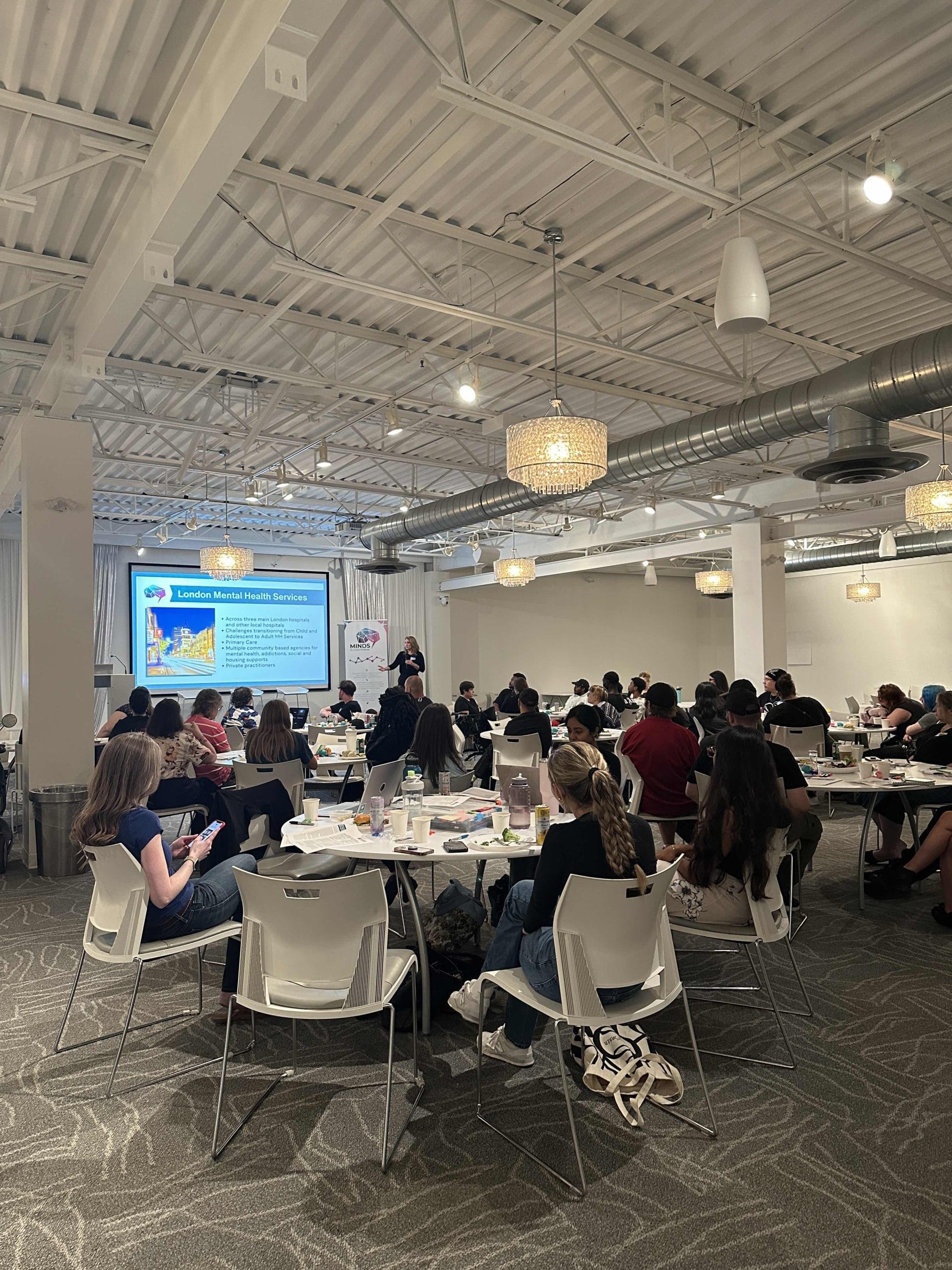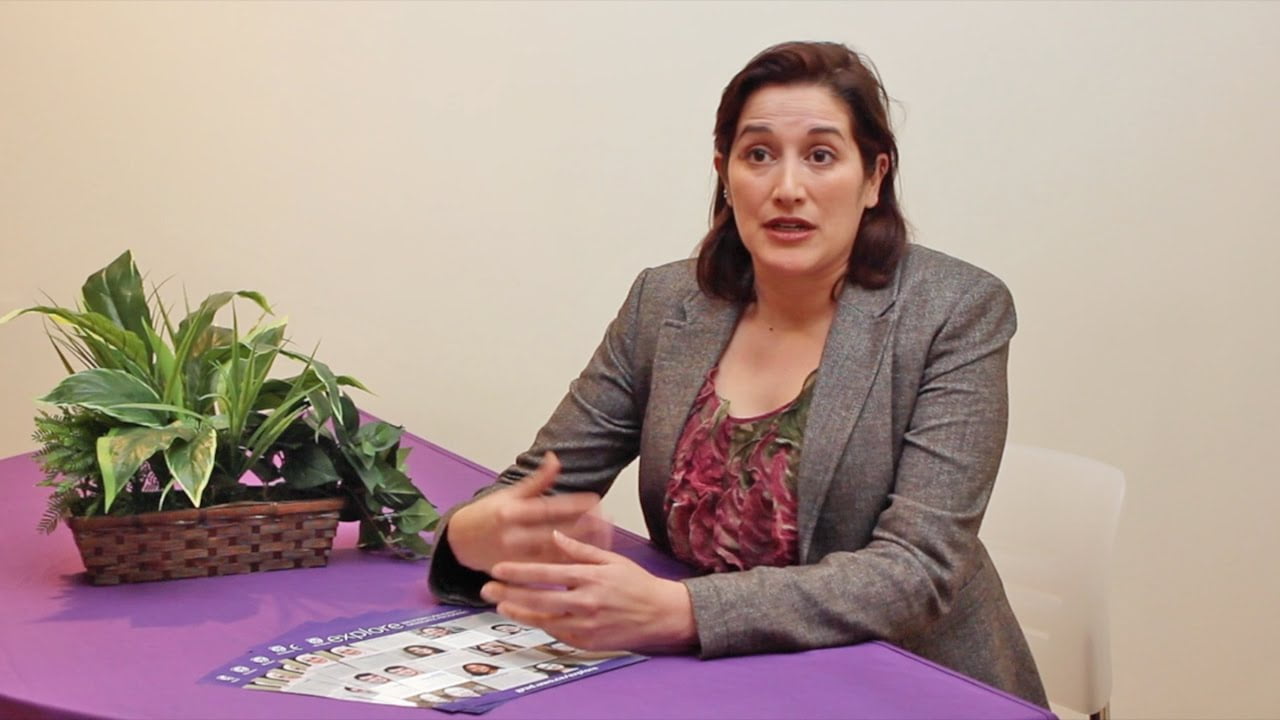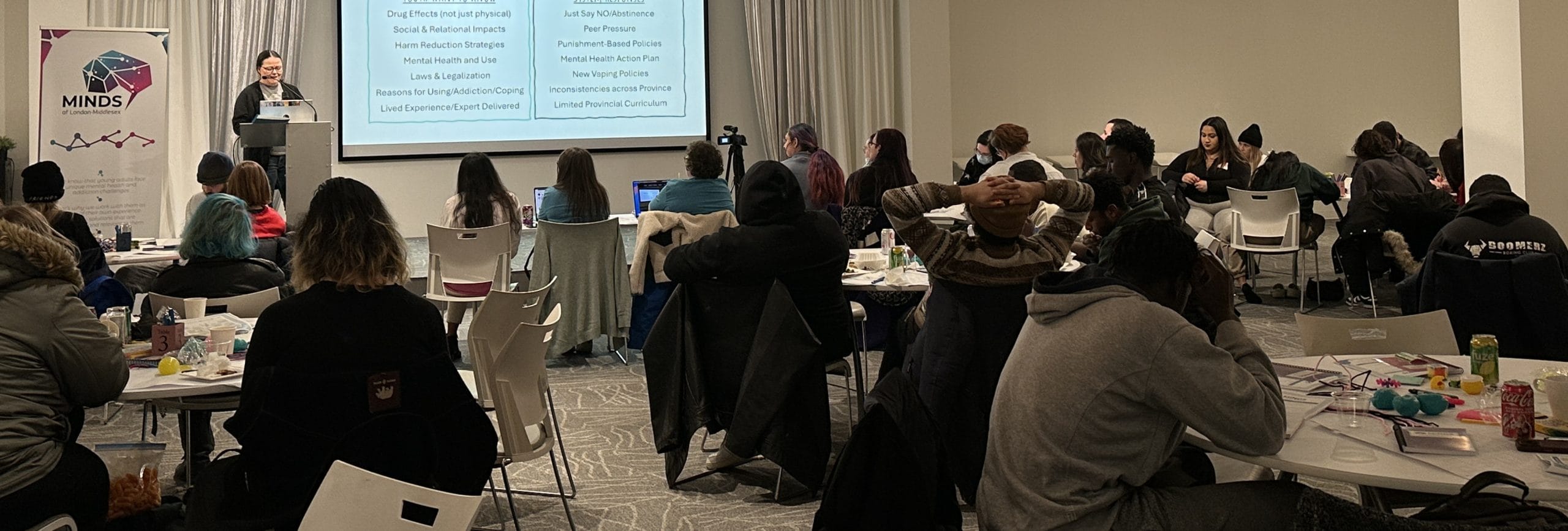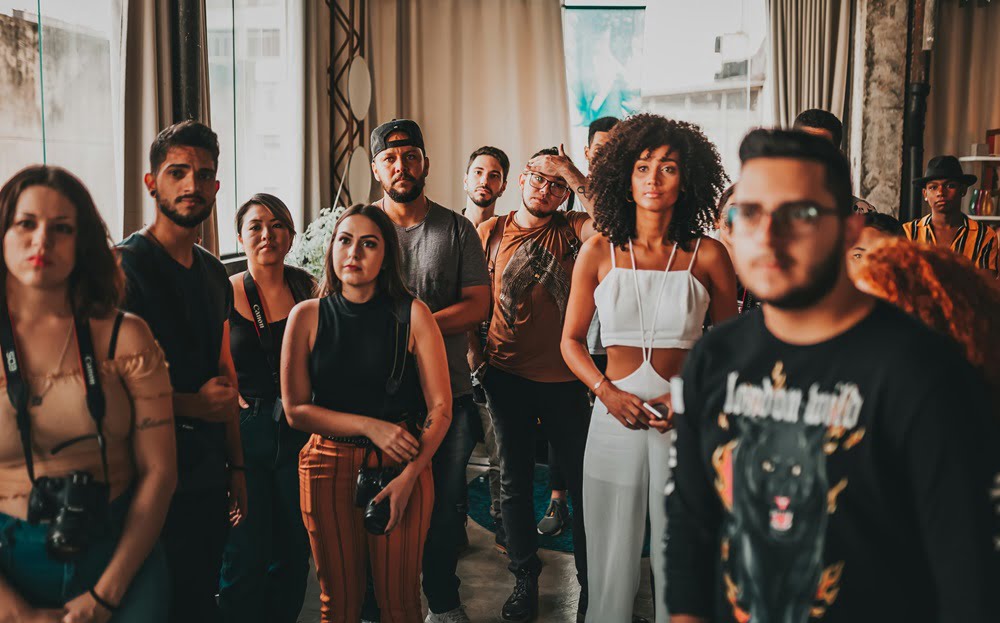Overview
Diverse voices gathered at Goodwill to tackle one of the most pressing challenges in mental health care: the lack of service coordination and system navigation in London-Middlesex. MINDS London’s first Collective System Innovation (CSI) Event wasn’t just another conference – it was a catalyst for change, a fusion of lived experiences and professional expertise, all anchored in the revolutionary approach of Mindful Social Innovation.
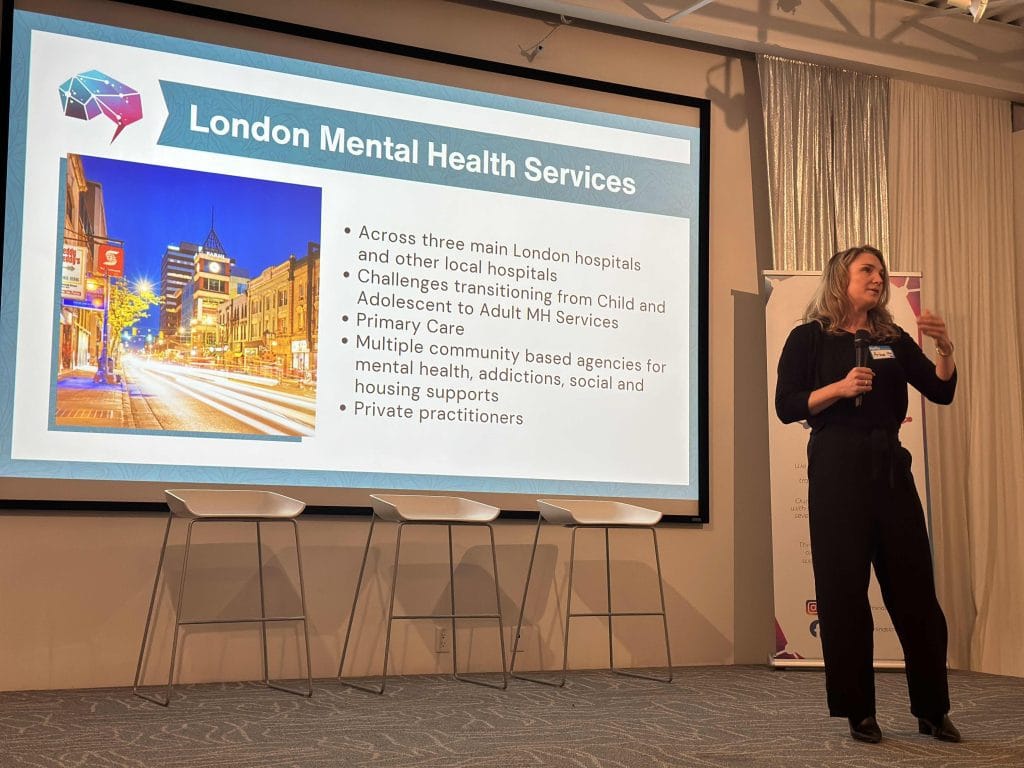
Day One: Setting the Stage for Transformation
As the clock struck noon, participants were greeted not with PowerPoint slides, but with an invitation to presence. Shara opened the event with a powerful reminder: true innovation begins with a quiet mind. The group engaged in a TUZA meditation, focusing on the question, “What does wellbeing mean to you?” This brief mindfulness practice set the tone, creating a space where vulnerability and creativity could flourish.
Unravelling the Threads: The Mental Health Landscape
Dr. Arlene MacDougall took centre stage, unveiling the complex tapestry of mental health challenges in London-Middlesex. Her presentation on “The Mental Health and Addiction System” painted a vivid picture of a system struggling with fragmentation and accessibility issues. She introduced the concept of mental health as a ‘wicked problem’ – complex, interconnected, and resistant to simple solutions. As Dr. MacDougall spoke, heads nodded in recognition. These weren’t just abstract concepts – they were lived realities for many in the room.
The Power of Mindful Social Innovation
The afternoon deepened our understanding of the innovative approach at the heart of MINDS London’s work. Arlene’s presentation on “The Case for Mindful Social Innovation” illuminated how mindfulness practices could transform not just individual experiences, but entire systems of care. She defined social innovation and walked participants through the social innovation cycle, emphasizing the unique power of mindful approaches in this process.
A crucial part of the day was Renee’s presentation on the sensemaking results. She shared insights from months of research, interviews, and community engagement, focusing particularly on the theme of “Lack of Service Coordination & System Navigation.”
Key takeaways included:
- The difficulty both providers and patients face in navigating the complex web of services
- The challenges of transitioning between youth and adult care systems
- The need for better integration and communication between different service providers
Expert Voices, Shared Wisdom
The day culminated in an expert panel and Q&A session, bringing together diverse perspectives on system navigation challenges. Panelists shared insights from their professional experiences and personal journeys, highlighting both the obstacles and opportunities in improving system navigation.
As questions flowed, common themes emerged:
- The urgent need for better coordination between services
- The importance of human-centred design in creating navigation solutions
- The potential role of technology in streamlining access to care
- The critical importance of including lived experience in any system redesign
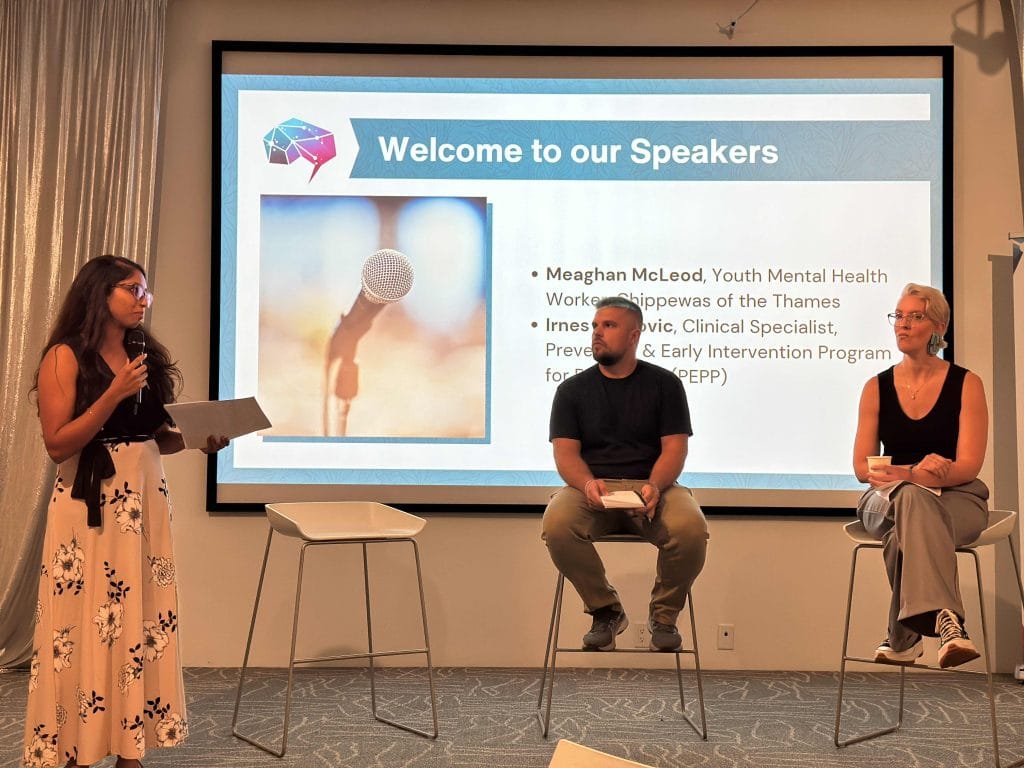
Day Two: From Ideas to Action
The second day dawned with another invitation to presence. Shara led a breathing exercise, reminding participants that innovation flows best from a centered, mindful state. The group reflected on the question, “What stood out to you about yesterday?” This moment of reflection helped bridge the insights from day one with the action-oriented focus of day two. The day began in earnest with participants forming working groups based on shared interests and complementary skills. This session allowed team members to share their backgrounds, expertise, and personal connections to the challenge of system navigation.
Innovation in Action: Collaborative Problem-Solving
The heart of the day beat strongest during the small group problem identification and ideation sessions.
Participants dove deep into specific aspects of the system navigation challenge, using a variety of creative techniques:
- Problem Identification: Groups used a structured framework to explore different facets of the navigation challenge, considering questions like “Where do patients struggle the most when trying to get the care they need?”, “How can we improve the way patients and providers find and connect with the right resources?” and “What difficulties do people working in the system face when trying to navigate the available services?”
- Mind Mapping/ Reverse Brainstorming: Teams created visual representations of the problem space, exploring connections between different aspects of system navigation. Some groups employed this technique, asking, “How could we make navigation even worse?” – a provocative approach that often reveals hidden assumptions and opportunities.
- The Wheel of Innovation: Teams used this tool to evaluate their emerging ideas against criteria such as accessibility, sustainability, and potential for impact. Ideas flowed freely onto chart paper and digital tablets: “What if we had a centralized mental health resource hub for London?” one group proposed, envisioning a digital platform that could guide individuals through the maze of services.
Another table tackled the thorny issue of transitions between youth and adult services.
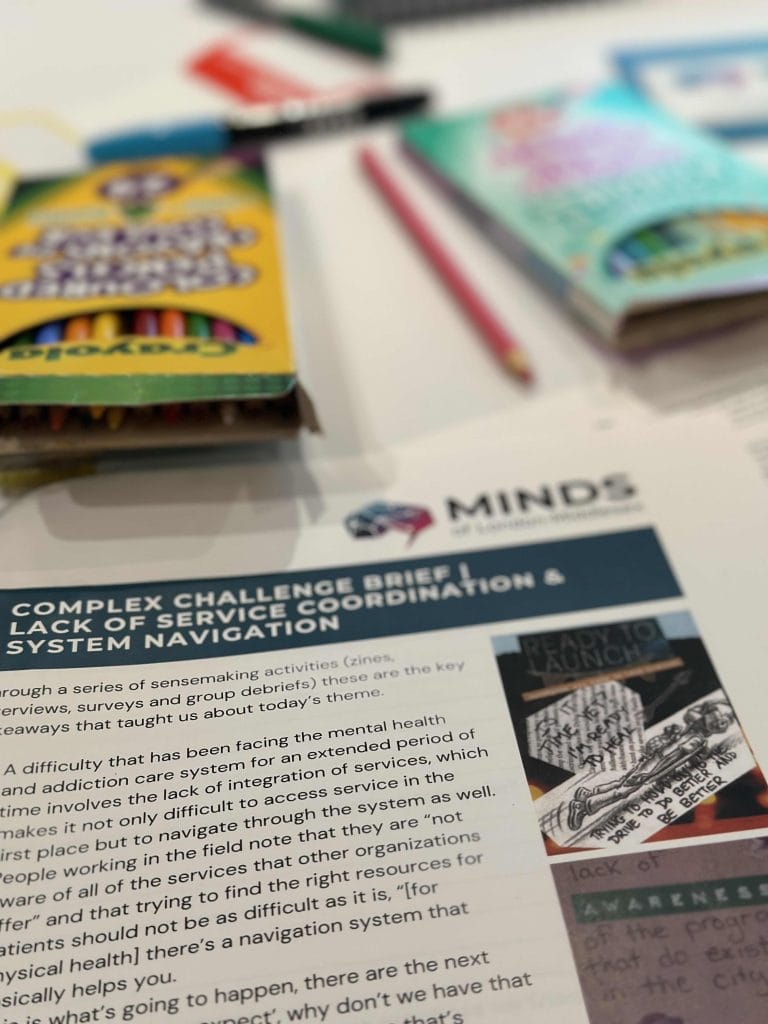
From Brainstorm to Prototype
The room buzzed with creativity as rough prototypes emerged. Check out our blog in the coming months to see how these initiatives grow and emerge
The approved projects are:
The Dragonfly Initiative: Creating a welcoming space and opportunities for self-expression through an art and coffeehouse event where people can sell their art or donate to a community spaces for mental health/addiction.
Mental Health Resources for London Youth (MARLY): A local resource website that focused on helping youth find the resources they need to get help. Includes a quiz/guide to help connect the right people to the right resources.
MINDS Hub: A wellness app that focusses on mindfulness and resources. The focus is on practical things; community meals, bus tickets, food stamps; as well as games and other app recommendations to help people locally.
Reconciliation Training: Create new reconciliation training that encourages the coordination of care practices specific to Indigenous people in Western care systems.
True Talk: A video podcast for people to share their lived experiences of the London system. There will also be a discord and additional supports for youth speakers.
Pitching for Change
The day culminated in a series of rapid-fire pitches. Each team had the chance to present their prototype, fielding questions and gathering feedback from the wider group. The diversity of approaches was striking, yet a common thread ran through them all: a deep commitment to making the mental health care system more accessible, coordinated, and human centered. Pitches were evaluated not just on their innovative potential, but on their alignment with the principles of mindful social innovation and their potential for real-world impact.
A Call to Action
As participants left, armed with new connections and fresh inspiration, the message was clear: this is a movement, and everyone has a role to play. Ideas were exchanged, connections were made, and a sense of hopeful determination permeated the group. The journey to transform mental health care in London had taken a significant step forward – and the best was yet to come.
Are you ready to be part of the mental health revolution? Here’s how you can get involved:
- Join a Prototype Team: Connect with one of the teams working on navigation solutions. Your skills and perspective could be the missing piece! Join our Youth Discord here: https://discord.gg/Wgk8WjHWwz
- Attend MINDS Monthly Socials: Join us on the first Friday of each month at Innovation Works from 6-9pm to network, share ideas, and keep the momentum going.
- Stay Connected: Follow MINDS London on social media for updates and opportunities to contribute. You can also use our website form to connect with the team.
